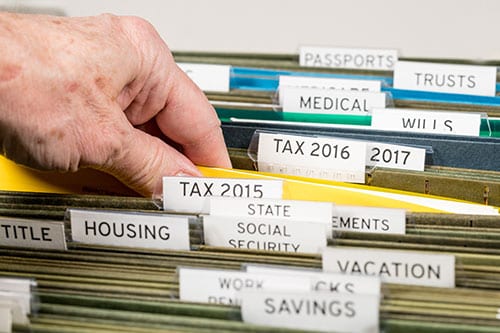How Long Should You Keep Records for the IRS?
It is never fun to talk about the IRS and those nasty “audits.” If you have ever been audited and worse owed them money, you may think that you will be in their debt forever. While they have no time limits for collecting what you owe in an audit, you do have time limits for how long you must keep records to make them available for an audit, or worse and investigation.
Depending on the type of transactions and other criteria, there are several time buckets into which your records, invoices, and receipts fall. Depending on the source, you will read that the IRS keeps records at least 20 years in digital form, and that you should keep your tax returns for at least that long, even if not the records behind them. You can also read that records should be kept for 7 years.
“The length of time for keeping records as required by the IRS is the topic of this article. However, there can be other reasons for keeping them longer, such as for insurance, property valuation, and inheritance reasons. The IRS says this in general:
The length of time you should keep a document depends on the action, expense, or event which the document records. Generally, you must keep your records that support an item of income, deduction or credit shown on your tax return until the period of limitations for that tax return runs out.
The period of limitations is the period of time in which you can amend your tax return to claim a credit or refund, or the IRS can assess additional tax. The information below reflects the periods of limitations that apply to income tax returns. Unless otherwise stated, the years refer to the period after the return was filed. Returns filed before the due date are treated as filed on the due date.
Note: Keep copies of your filed tax returns. They help in preparing future tax returns and making computations if you file an amended returni.”
Period of Limitations that apply to income tax returns:
| 3 years | If none of the other situations apply, keep for 3 years. Keep records for 3 years from the original date of filing return or for 2 years from the date you paid the tax, whichever is later. |
| 4 years | Keep employment records for 4 years after the date that the tax becomes due or is paid, whichever is later. |
| 6 years | If you do not report income that you should have reported, and it is more than 25% of the gross income on the return. |
| 7 years | If you file a claim for a loss from worthless securities or bad debt deduction. |
| Indefinitely | If you did not file a return or if you filed a fraudulent return. |
If the Records Pertain to Property
Keep records pertaining to property for whichever period of limitation applies for the year in which you dispose of the property. If you received property in a nontaxable exchange, you must keep the records on both the old and new property until the expiration of the period of limitation for the year in which you dispose of the property.
i How Long Should I Keep Records? IRS.gov

